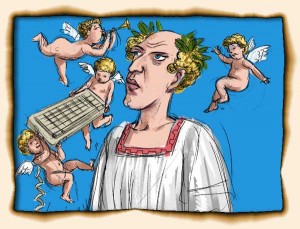 An interesting educational tidbit from the Times on a charter school in Massachusetts that is teaching philosophy to second graders:
An interesting educational tidbit from the Times on a charter school in Massachusetts that is teaching philosophy to second graders:
A few times each month, second graders at a charter school in Springfield, Mass., take time from math and reading to engage in philosophical debate. There is no mention of Hegel or Descartes, no study of syllogism or solipsism. Instead, Prof. Thomas E. Wartenberg and his undergraduate students from nearby Mount Holyoke College use classic children’s books to raise philosophical questions, which the young students then dissect with the vigor of the ancient Greeks.
“A lot of people try to make philosophy into an elitist discipline,” says Professor Wartenberg, who has been visiting the school, the Martin Luther King Jr. Charter School of Excellence, since 2007. “But everyone is interested in basic philosophical ideas; they’re the most basic questions we have about the world.”
As you might imagine, elucidating the perversions of the categorical imperative might not hold the attention of a youngster all that well, so the teachers (who are actually professors and college students From Mount Holyoke—this is an educational experiment) stick to kids’ books:
One afternoon this winter, the students in Christina Runquist’s classroom read Shel Silverstein’s “Giving Tree,” about a tree that surrenders its shade, fruit, branches and finally its trunk to a boy it has befriended. The college students led the discussion that followed — on environmental ethics, or “how we should treat natural objects,” as Professor Wartenberg puts it — with a series of questions, starting with whether the boy was wrong to take so much from the tree.
“We don’t actually try to convince them that trees deserve respect,” he says, “but ask them, ‘What do you think?’ We’re trying to get them engaged in the practice of doing philosophy, versus trying to teach them, say, what Descartes thought about something.”
Indeed. Nothing really here to criticize, or even to comment on too much. I like the notion of childhood conversation being highly philosophical in nature, and I tend to believe it, too. Children question things; they have a heightened sense of the scarcity of resources (sharing) and the impact that has on themselves and the world around them; and they innately seem to comprehend questions of fairness and justice (he got more than me; let her play with that because she’s smaller, etc). Teaching them ethics makes sense, particularly because I think it’s something kids pick up on their own. The classroom only helps them contextualize what they are soaking in from the world around them.
All that and Sesame Street. It’s good to be a kid.

Pingback: The Horror: Nietzsche and Family Circle | DADWAGON